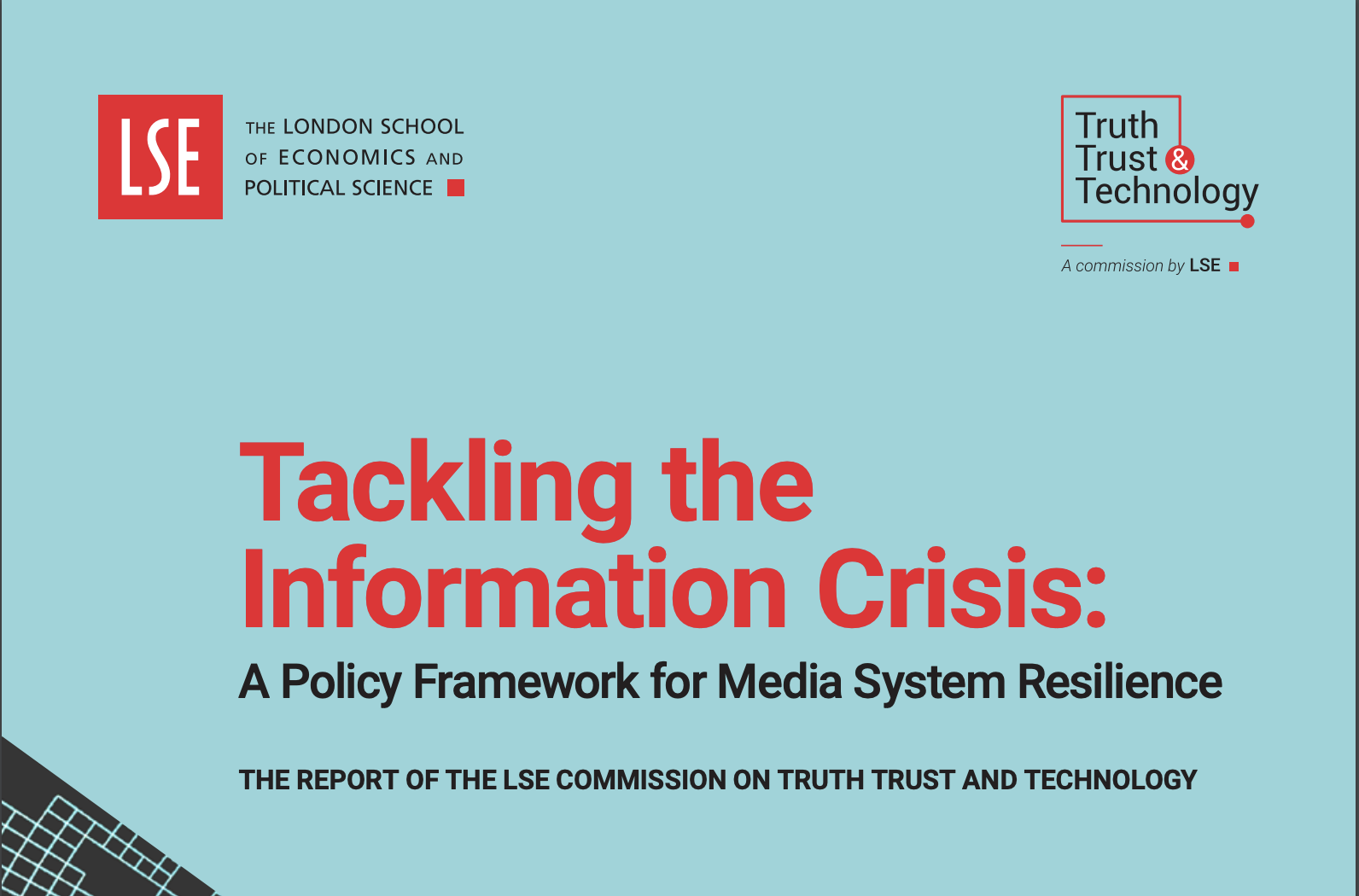The BBC has announced plans to ‘modernise’ its news service in the face of the need to find £80 million of savings. It says it will restructure the news division and reform its ‘news agenda’ along with cutting 450 jobs. There is rightly a lot of debate about the BBC’s wider role and some detailed critiques of its coverage, especially of political news. In this article, Charlie Beckett, director of Polis at LSE has a first look at the proposed changes in editorial strategy and asks whether it is just a way of trimming costs or whether it really can help make BBC journalism fit for a world of networked digital news. This is a version of a piece that first appeared in TheArticle.com
450 job cuts is tough no matter how you slice it. Previously the BBC has tended to hollow out programmes and salami slice roles rather than make serious decisions on what it does. There is a flavour of this again. Newsnight will make fewer films (as if the world needed more political chat), presenters will probably find themselves working across more outlets and so on. There are a couple of nasty cuts that seem to have fallen on precisely the kind of editorial diversity and original journalism that the BBC needs such as the lamentable demise of the Victoria Derbyshire show. But the big picture shift is the avowed change in the ‘news agenda’.
Many news brands are reducing the number of ‘stories’ they cover which makes sense in a media world of over-duplication. The question is whether you create added editorial value by refocusing. Do you add original research, reporting, analysis or creativity to the fewer stories you cover? Does it allow you to produce content more relevant to different demographics or interests?
Whether this means a retreat or dilution of BBC universality and/or an enhanced ‘distinctiveness’ depends on how you define ‘stories’. I would argue it’s possible to do what you do best and link to the rest to free up resources and energy for standing out in the crowded news environment.
Alongside a shift towards curation there also needs to be a serious commitment to ‘digital’, treating social media as a legitimate first platform or network, not an add-on to the ‘real’ journalism done on TV or radio. We have seen with the podcasting boom in recent years how new formats can actually help revive traditional channels. The BBC’s Brexitcast podcast for example ended up as important as the conventional coverage.
Of course, the BBC isn’t a news start-up or a commercial brand where management have more control. This is the BBC and despite all the shiny consultancy-style ideograms any restructure will have to battle through the swamp of internal turf wars and external lobbying. If the aspiration to ‘multi-skilling’ is to mean more than just cost-efficiencies then the culture has to change.

BBC editors and executives will have to display the skills, understanding and commitment to new ways of working that has been sadly lacking over recent digital decades. The BBC can claim to have led on the original move of journalism online and has pioneered some outstanding networked digital journalism. But too often following the career path and the money has led the talent back to the analogue outlets or off to other more enterprising news organisations.
This re-think is coming about because of financial pressures. Some, such as the burden of providing free licence fees for the over 75s is a cheap political trick that the BBC stupidly acceded to while under the cosh of Charter renewal. But overall this is a painful way for the BBC to face up to the fact that the world of journalism and media in general has changed. Netflix is just one factor. The change in youth consumption patterns is far more significant. But above all that, the BBC needed to take a long hard look at what it does to justify the licence fee. It is great value but does it create great services? There will be a greater need for the BBC’s public service journalism in some areas such as local news. In other areas such as political debate and lifestyle journalism it is arguable that we already have a surfeit.
I have huge respect for the commitment, hard work and ability of much of BBC journalism, but there’s a real danger that it has not moved fast enough to change. The internal incentives towards inertia are powerful and there’s been a serious talent/brain drain both at senior leadership levels but also at the cutting edge of editorial innovation. Multi-skilling must not just be a euphemism for blandness and an excuse for cutting corners. Let’s not waste this ‘crisis’.
@CharlieBeckett
Charlie Beckett is a professor in the Media and Communications Department at the LSE and director of Polis, the LSE”s international journalism think-tank. He worked at the BBC from 1989-1999 and was an advisor to the Commons Media Select Committee during the last BBC Charter Renewal process.




